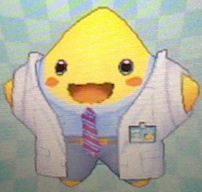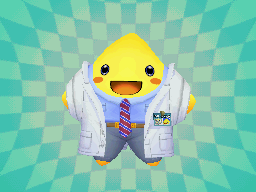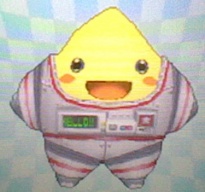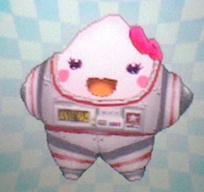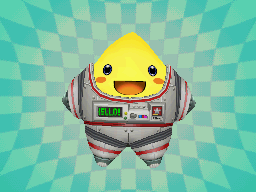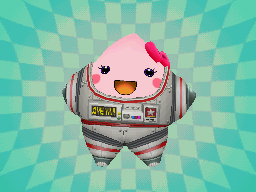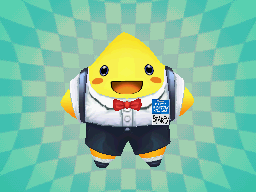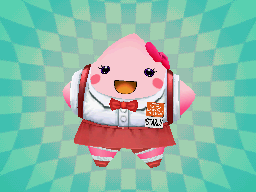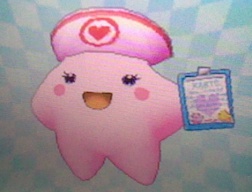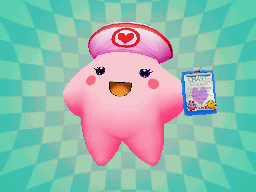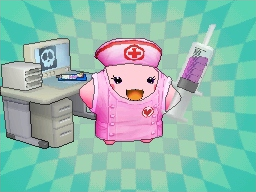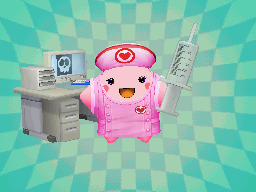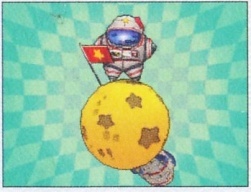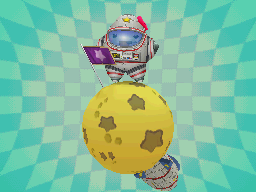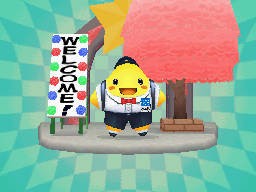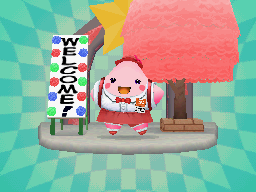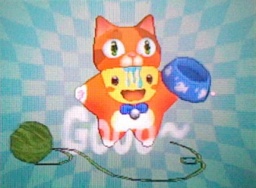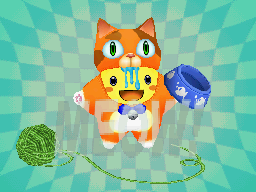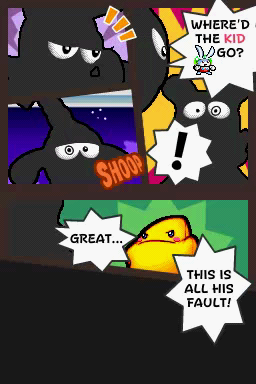The Legendary Starfy/Regional differences
This article or section is incomplete.
| |

|
You can add to it by clicking the edit button at the top of the article. Reason given: Differences in character names, names of abilities, location names, etc. |
During the localization process of The Legendary Starfy, various changes were made to the game so that it would appeal to North American and Australian audiences.
This article covers regional differences in the game. For other differences relating to the game's distribution, including box and manual, see here.
Title change
This game was originally released as Densetsu no Stafy Daīru Kaizokudan (Japanese: 伝説のスタフィー たいけつ!ダイール海賊団), literally Legendary Starfy Daīru Pirate Squad (or ostensibly Dire Pirate Squad) in Japan.[1] Daīru Pirate Squad refers to the group of space pirates lead by Mashtooth, including The Terrible Trio and Swabbies.
The game was released outside of Japan simply as The Legendary Starfy, presumably because it is the first game in the series to have been released outside of Japan, so the rest of the title wouldn't have been needed to differentiate it from the other four games.
Journal 'unlocked' mark
In the Japanese version, unlocked entries in the Journal (known as 'Events' in this version) are marked with a red marujishi ('◯ mark') instead of a green tick. A tick actually has an different meaning to the Japanese, meaning 'incorrect'.
-
JPN
-
NA/AUS
Stuff differences
This section describes differences in the Stuff between the Japanese and English versions.
See also The Legendary Starfy/Stuff for a list of Stuff in the game.
Changed Japanese names
When the game was translated from Japanese to English, most of the names of the Stuff did not receive literal translations. The table below describes a number of notable changes.
Clothes
|
Extras
|
Specials
|
Regional differences
Various changes were made to the appearance of the Stuff between the localisations and the original Japanese version.
Doctor's Coat
In the Japanese version, the text on the badge is written in blue instead of black.
-
Japanese version
-
Localisations
Spacesuit
In the Japanese version, the texts 'Hello!' (Starfy) and 'Love ya!' (Starly) are written with two exclamation marks instead of one.
-
Japanese version (Starfy)
-
Japanese version (Starly)
-
Localisations (Starfy)
-
Localisations (Starly)
Back-to-School Clothes
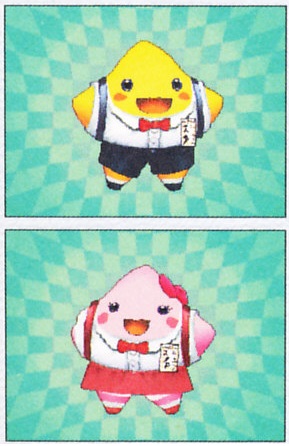
In the Japanese version, papers on Starfy and Starly's clothes omit a blue/orange section on the top of the paper and have kana written vertically. Starfy's version has the written kana 'ス' (Su), 'タ' (Ta) - the first two letters of 'スタフィー' (Starfy). Starly's version has the text 'ス', (Su) 'タ' (Ta) and the letter 'P', which phonetically sounds like Starly's Japanese name, 'Stapy'.
In the localisations, there is text on the blue/orange section of the paper which is difficult to read. Additionally, at the bottom of the paper there is text that says either 'Starfy' or 'Starly'.
-
Localisations (Starfy)
-
Localisations (Starly)
Doctor's Accessory
In the Japanese version, the top of the paper on the clipboard on Starly's version says 'KARTE' instead of 'CHART'. This is probably a romaji rendering of 'chart' from the katakana 'カルテ' (karute).
-
Japanese version (Starly)
-
Localisations (Starly)
Hospital Checkup
In the Japanese version, the syringe on Starly's version has a purple fluid in it. The fluid was removed completely in the localisations.
-
Japanese version (Starly)
-
Localisations (Starly)
Space Voyage
In the Japanese version, the flag on Starly's version is red with a yellow star instead of purple with a white star.
-
Japanese version (Starly)
-
Localisations (Starly)
School Days
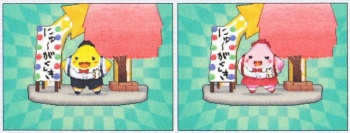
In the Japanese version, the board next to Starfy or Starly spells the kana にゅーがくしき, meaning School Entrance Ceremony (入学式). The regional differences for the Back-to-School Clothes also apply (see here).
-
Localisations (Starfy)
-
Localisations (Starly)
Playful Kitty
There is a regional difference that only applies to Starfy's version. In English games the word 'MEOW!' comes out of the cat. In Japanese games the equivalent onomatopoeia 'Gooo~' comes out of the cat, instead.
-
Japanese version (Starfy)
-
Localisations (Starfy)
Manga-style cutscenes
The Japanese version's Story cutscenes appear on the screen from right-to-left in the style of manga. According to Miki Fujii, the original game was made 'with the Japanese manga culture in mind' but when The Legendary Starfy was brought to America, a number of changes were made to the Story cutscenes so that they read from left-to-right instead of right-to-left. [2]
Japanese onomatopoeia were either changed or removed in the localisations. For example in the 'The Adventure Begins' cartoon, きょろ (onomatopoeia for searching for someone with one's eyes) was replaced with 'shoop'.
-
A section of the 'Opening' cartoon in the Japanese version. The strips appear from right to left like in Japanese manga
-
A section of the 'The Adventure Begins' cartoon in the North American version. Note that Starfy, Snips, Papes and Ronk were flipped in the process of making the strip read from left-to-right
Mermaid's voice
In the Japanese version, the Mermaid exclaims 'hi-hi', instead of 'hi'. The Mermaid previously exclaimed 'hi-hi' in Densetsu no Starfy 4, although the voice in Legendary Starfy Daīru Pirate Squiad is higher pitched than the one in Densetsu no Starfy 4.
Moe's voice
In the Japanese version, there are a number of situations where Moe will exclaim something. This voice was removed in the localisations.
The situations include:
- Moe jumping on the goal at the end of Stage 1-1 (Gluglug Lagoon).
- Being shown Moe's advice after taking a second hit in the Paper-Cut Crusher Battle (Japanese: じゃんけんアタックバトル, Janken Attack Battle).
- Moe's reaction after Starfy pushes The Moon into Mega Mashtoooth (Japanese: さいきょうダイール, Strongest Daīru).
Narrations
There are a number of narrations in the game that are exclusive to the Japanese versions.
Name of game
In the Japanese version, on the screen where 'Adventure' or 'Local Wireless' can be chosen, a Japanese voice can be heard shouting the name of the game; "Densetsu no Starfy Dairu Kaizokudan".
Jan-ken-pon
In the Japanese version, voices are used in the Rock, Paper Scissors game to reflect the common rules of Janken (Rock-Paper Scissors).
Nintendo
When the game is started up, the Nintendo logo is shown on the top screen, while Starfy and Starly are shown running up to each other to join their hands on the touch screen.
In the Japanese version, after Starfy and Starly touch their hands a female voice is heard shouting 'Nintendo!'. After beating the game there is a chance that a longer version of the same voice is heard.
Time notation
In the Japanese version, the times for Big Bossdown (Japanese: ボスオンパレード Boss on Parade) and the ??? stage are displayed in the notation (xx)'(yy)"(zz) instead of 'xx:yy:zz'.
References
- ↑ Nintendo Power magazine, Volume 244, Future Publishing, August 2009, pp. 73. Link: [1]
- ↑ Nintendo Life Nintendo/TOSE interview - The Legendary Starfy
